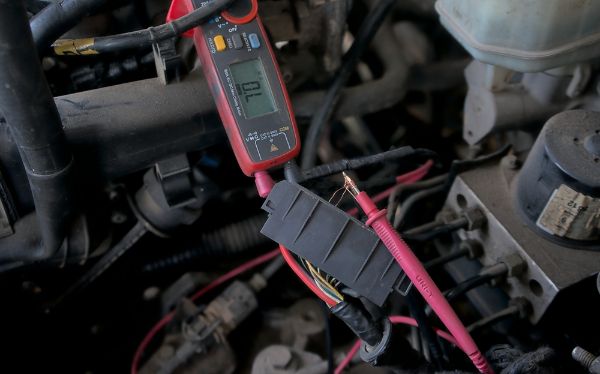Some drivers only think about electrical repair when a light stops working. But today’s vehicles run on complex electrical systems. The starter, battery, wiring, lights, sensors, and fuses all work together. If just one part goes out, the whole system can feel off. The electrical system helps with heating, cooling, starting, braking, and even steering. Some problems show up slow. Maybe the windows stop rolling down. Maybe the lights flicker when you turn the key. It’s not just about power. It’s about how your vehicle responds. When that starts to change, electrical repair becomes more than a fix. It’s a step toward safety.
How to Spot Electrical Issues in Your Vehicle
Our shop sees lots of electrical repair needs. The hard part is how different they can be. Sometimes it’s a wire that came loose. Sometimes a battery just won’t hold charge. These are common signs we look for:
- Dim or flickering headlights
- Clicking sound when turning the key
- Battery keeps dying
- Radio or dashboard lights go out
- Turn signals stop working
- Windows won’t roll
- Cabin lights flash or stay on
- Burning smell near the fuse box
These signs can seem small but may point to something deeper. Catching them early keeps your vehicle in top shape.
Local Repair Shops Know What to Check
At Advanced Towing & Automotive, we handle vehicle electrical repair every day. From faulty fuses to corroded battery cables, we check every part of the system. The job is more than swapping out parts. It’s finding the real issue. Sometimes a dead battery is just the start. Sometimes it’s something hiding deeper in the wiring. Our technicians take the time to look, test, and fix what’s needed. You can schedule an appointment or reach out anytime at Advanced Towing & Automotive.
A Story You Might Know
We once worked with a driver who kept missing work because their vehicle wouldn't start. The battery was brand new. So they replaced it again. The issue kept happening. Turned out it wasn’t the battery. A corroded ground wire under the hood was breaking the whole connection. That driver now comes in for regular electrical checks. They said the fix made them feel like their vehicle was awake again. These are the stories we hear all the time. Electrical repair matters. And most drivers just want to feel sure their vehicle will respond when they turn the key.

